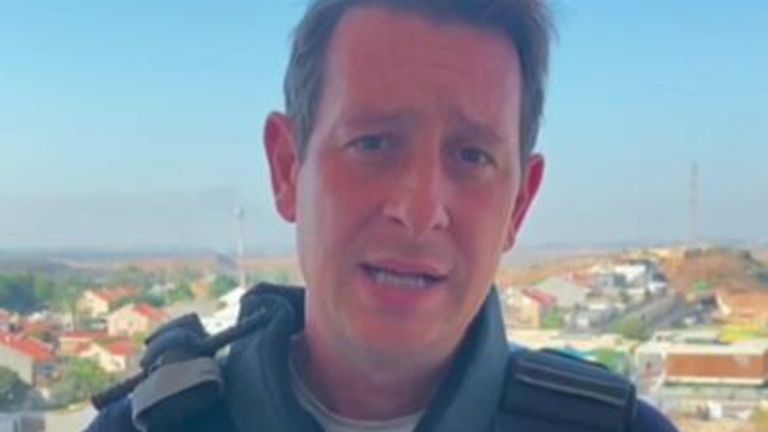Benjamin Netanyahu’s decision to summon his Mossad negotiating team home from Qatar means that Israel has taken the decision that Hamas either is not interested in another truce or they are not providing anything that would satisfy the Israelis that it is worth making concessions.
That does not necessarily mean that negotiations are off entirely.
Although the Mossad officials are no longer in Doha in person, there are other channels of communication open between the two sides – and other mediators including Qatar and Egypt will continue their dialogue with Hamas to reach a solution.
Follow live: Netanyahu pulls team out of Qatar talks
But as much as anything, it appears to be a clear signal from the Israelis that there is nothing else for them to talk about at this point.
The other very clear signal from the Israelis since the ceasefire broke down yesterday morning is that they are fighting very hard in Gaza.
From our position in Sderot, just a mile away from Israel’s border with northern Gaza, we have seen and heard Israeli air strikes and artillery fire throughout the past 24 hours.
Hamas has responded with barrages of rockets towards southern Israel.
Read more:
Truce with Hamas has ended – what will Israel do now?
Blinken tells Israel it needs ‘clear plan’ to protect civilians before Gaza attacks resume
There’s a strong belief among people close to Mr Netanyahu that Hamas will be more likely to concede and to release more hostages if they are under severe military pressure.
That was also the belief of the Israeli prime minister when the first pause was agreed just over a week ago – that it was largely brought about as a result of heavy fighting that had been going on for a number of weeks.
With the negotiations in Qatar clearly at an impasse, the Israelis may well feel that using military pressure to tighten the screws on Hamas again is their most effective strategy in order to get more hostages out.



